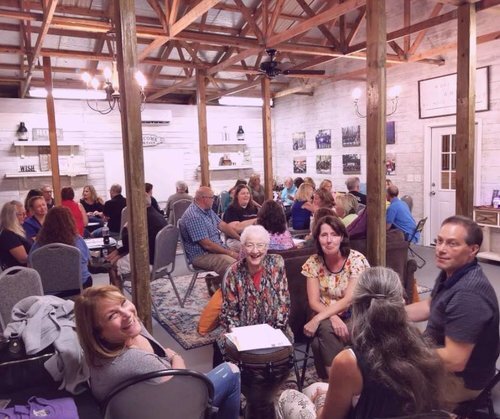As a child, most of us were given a choice of a variety of toys to play with. Some just for play, others to help us develop certain skills. They would help us develop our hand-eye coordination, our understanding of colors and numbers, and even a basic working understanding of shapes. As we grew older, those early teachings were expanded upon in school and maybe even through family members. Our foundations were laid and built upon with more information. (Follow me here as I make this connection…)
One of those early teachings was about shapes. Simply put, we learned that the square blocks, no matter how hard we tried to make them fit, would not fit in the round holes. To delve a bit deeper, we also learned (although we didn’t realize at the time) that there were circles, and rectangles, and stars as well. Other shapes, all different and unique. (ok, ok, I will land the plane)
Fast forward to adulthood. Currently our country is faced with battling the worst drug epidemic the world has ever seen. Too many lives are lost every day to the evils of addiction. Lives are lost, families are destroyed. The “just say no” campaigns and the “war against drugs” have proven to be simply not enough. Treatment for addiction, if we really think and look at it, has not really evolved all that much. Six or seven decades ago, two men started a group which would be later known and generally accepted as the standard for successfully treating alcoholism and drug addiction. Twelve-step programs were born. Then came the therapeutic communities, which the Eagles sang about in “Hotel California” (research it, it’s true). Oversimplifying a bit, there were a few other theories that came out until a few years ago, we as a country thought we arrived at THE answer. Fueled by many things, including the prevalence of addiction, the reduction in stigma, and even the financial needs of big pharma and commercial insurance, addiction was now a Disease. This was HUGE. We, as a society, felt as if we have made headway, and we did.
Addiction was finally getting the attention it needed. No longer was society turning a blind eye. Treatment programs wanted to help. Many still held on to the successful tenets of 12 step, while others looked to develop new ways of thinking about addiction treatment only to really all wind up doing very similar things.
If you have read this far, stay with me, my wheels are down and I can see the runway…
A few years ago, we started hearing the some catchphrases in the addiction field. Good treatment programs were going to be “holistic”. That even sounded cooler. But what did that mean, unfortunately for many, even those with the best of intentions, it meant simply nothing more that eating granola and meditating to a CD for an hour a week in “meditation group” and then back into a step-group or Big Book meeting.
While that may work for the round blocks, putting them in the round hole, what about the squares, the stars, the triangles. Where do we put them? What do we do? Now more than ever, our society has realized the differences in the needs of our population and treatment must mirror this. Now more than ever, good treatment programs need to provide the square holes, the stars, the triangles and even the circles too. Yes, treatment for addiction needs to be all-encompassing. What we have done up to this point, has not worked. Let’s do it differently.
Let us embrace the idea of differences and true individualized treatment whereby what works for one may not work for another. Some may do very well in 12-step while other may do better in a SMART recovery meeting. Further to the point, others may do well with medication and psychotherapy. The idea is simple, good treatment programs must offer it all. Meet folks where they are at, find out what it is will best help them, and do it. Get away from treating from a “one-size-fits-all approach” to something truly individualized gives us all the best chance to succeed in making a difference.
Thanks for flying, you may now exit the plane.








